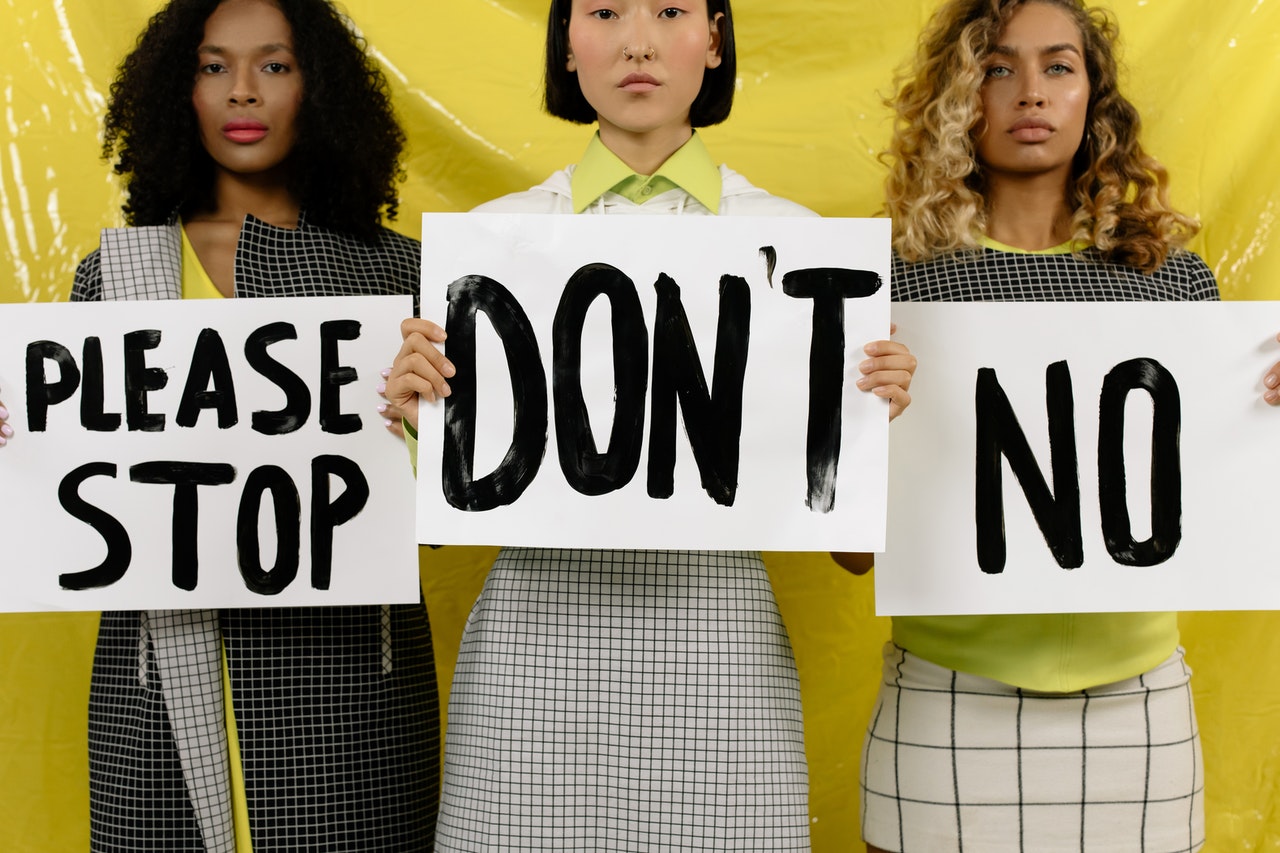You might have heard the phrase ‘cancel culture’ in common use over the past few years, but what does it actually mean and how can it impact your brand?
We explore the concept in this article, look at some examples of brands that have been canceled, outline why brands need to take a stand on social and political issues, and give you some tips on how you can protect your brand from being canceled.
What is cancel culture?
Cancel culture refers to a fairly recent phenomenon that often relates to online activity where a particular person or organization is called out and condemned for their actions. It is a way of demonstrating mass disapproval and showing that certain social behaviors won’t be tolerated, even by those in a position of power.
 Cancel culture first gained momentum on social media as a result of people demanding greater accountability from public figures. Now, barely a day goes by without us hearing about the latest brand or celebrity to have found themselves ‘canceled’, with years of hard work and their reputation damaged – often beyond repair.
Cancel culture first gained momentum on social media as a result of people demanding greater accountability from public figures. Now, barely a day goes by without us hearing about the latest brand or celebrity to have found themselves ‘canceled’, with years of hard work and their reputation damaged – often beyond repair.
While some condemn ‘cancel culture’ for being an extreme “woke” reaction to a mistake or misunderstanding, others argue that it is simply an important way of working towards social justice and holding individuals or brands to account for their behavior.
Since they are in a position of power and in the public eye, they must also be mindful of how what they do or say affects the wider population. Whichever side you fall on, as a business it is important to keep consumers engaged and show that you are willing to change and evolve.
You might think that businesses should focus on providing great products or services and keep out of political and social issues as that is not their area of expertise and may alienate their customers.
However, more and more consumers are realizing how connected all these different factors are and, in today’s socially conscious society, the brands who choose not to take a stand about the issues they care about are arguably the ones taking the biggest risk.
Why are more companies being held to account?
We are living in a world where consumers are more reliant than ever on their favorite brands to take a stand on the issues they care about and to make a positive impact on society. Having great products or services is essential, but should be a given – it is the extra things that brands are doing to improve the world that is important to consumers.
While the prospect of ‘being canceled’ may seem scary, it is not necessarily something to be feared. In fact, 88 percent of consumers are more willing to forgive a company for making a mistake if it shows a genuine attempt to change.
As with any crisis, prevention is always going to be better than cure, so what can companies do to protect themselves from being canceled whilst also making themselves more appealing to their customers?
What are some examples of brands being ‘canceled’?
Canceling is perhaps a misleading term as consumers may well be willing to get back on board with a brand if they show they can evolve or change their behavior. It might be helpful to instead think of it more like a boycott.
Here are a few examples of brands running into trouble for their actions and how they have reacted.
i). Pepsi
One of the examples of a brand’s advert that has been canceled, and is still infamous years later, is the Pepsi advert that featured Kendall Jenner. The advert was aired in the context of the Black Lives Matter movement and depicted a young woman handing a can of Pepsi to a policeman during a protest which restored the peace.
The advert was widely condemned as tone-deaf and irresponsible, particularly when the Black Lives Matter movement was trying to draw attention to devastating incidents of black people being killed by police officers in the US. Pepsi pulled the advert just one day later and issued an apology.
ii). Oatly
Swedish milk alternative brand Oatly came under fire last year after its ties to controversial private equity firm Blackstone. Since Oatly prides itself on progressive values and, in particular, has a strong environmental stance, consumers were upset that one of their investors was a company with ties to deforestation in the Amazon.
They chose to defend their position rather than apologize, arguing that if they could convince Blackstone that sustainable companies were profitable, then more private equity firms might look to green investments. However, some have pointed out that Oatly’s brand values failed to align with their behavior.
iii). L’Oréal Paris
Many brands wanted to make a public stand against racism when the Black Lives Matter protests were at their height in 2020. However, when L’Oréal Paris did so, model and activist Munroe Bergdorf was quick to highlight their previous contradictory behavior.
She drew attention to the fact that the brand dropped her from their campaign after she spoke out about systemic racism in 2017, stating that they “threw her to the wolves”.
In response, the brand’s new president Delphine Viguier apologized for the way the situation was handled and reached out to Bergdorf for a conversation. Bergdorf accepted an offer to rejoin the brand and will be a part of the company’s UK diversity and inclusion advisory board.
 It probably comes as a little surprise that it all boils down to values, behaviors, and culture.
It probably comes as a little surprise that it all boils down to values, behaviors, and culture.
No brand is altogether safe from cancel culture, but there are steps that can be taken to prevent it from happening and minimize the damage if it does. Here are some helpful tips to consider today:
1. Having a purpose is essential
When it comes to canceling culture, having a clear purpose will always provide a strong baseline to enable you to know which issues you want to take a stance on, the impact you want to have on society, and the courage to organically defend your brand and its values when required.
Once you have defined your purpose, it goes without saying that you must make sure your behavior also aligns with it!
2. Be mindful of your brand ambassadors
Cancellation through association has become a problem for brands. Having a well-known ambassador on board to promote your brand can be a powerful thing, but if your chosen ambassador falls from grace it is highly likely that your company will come under scrutiny too.
If you choose to affiliate a specific person with your brand, make sure they align to your company’s purpose and values and be prepared to either stand beside them (a la Nike) or take action against them if they begin acting in a way that no longer aligns with your values.
3. Don’t neglect your crisis plans
Risks to your business aren’t static and will almost certainly change over time.
Make sure that you are reviewing your company’s crisis plans and procedures on a regular basis and ensure you include an action plan to cover how to respond in the face of being canceled. As with any crisis, time is of the essence and the faster you are able to act the better.
4. No comment is not an option
Cancel culture is all about accountability and the days of issuing a statement of, ‘No comment’, is long gone (and rightly so!). When things go wrong, consumers want to know what a brand is thinking and feeling as well as the action it intends to take.
The luxury of remaining neutral is no longer an option. At best it will make your company look as if it doesn’t care and at worst can appear as an admission of guilt.
5. Actions speak louder than words
If the worst should happen and your company finds itself under scrutiny for something that is been said or done, always be sure to prioritize actions over words. Consumers will want to know your stance on the situation but will almost certainly care more about the actionable steps you intend to take to address the situation.
Be cautious about sharing statements of solidarity on social media too. One-off initiatives that have no real alignment to your company’s purpose will hold little meaning to the consumer and may even result in your brand getting called out for making empty promises and lacking integrity.
6. Listen to your customers
Let’s not forget that cancel culture is all about holding brands and people accountable for their actions. Nobody wants to attract negative publicity, but if you do find your company being called out, take the time to listen properly to what is being said, act with integrity, and don’t be afraid to admit to making mistakes.
Those are just some of the steps you can take to make sure that your brand is acting responsibly and in line with its core values so that you are less likely to get canceled. You can’t always protect against making mistakes, but having a plan in place for controversial situations and making sure you stay true to your purpose will certainly help!

Kate O’Sullivan is the Managing Director of ADPR, a PR and communications agency with over 30 years of experience in creating and delivering strategic communications campaigns for its clients across a wide range of sectors.

